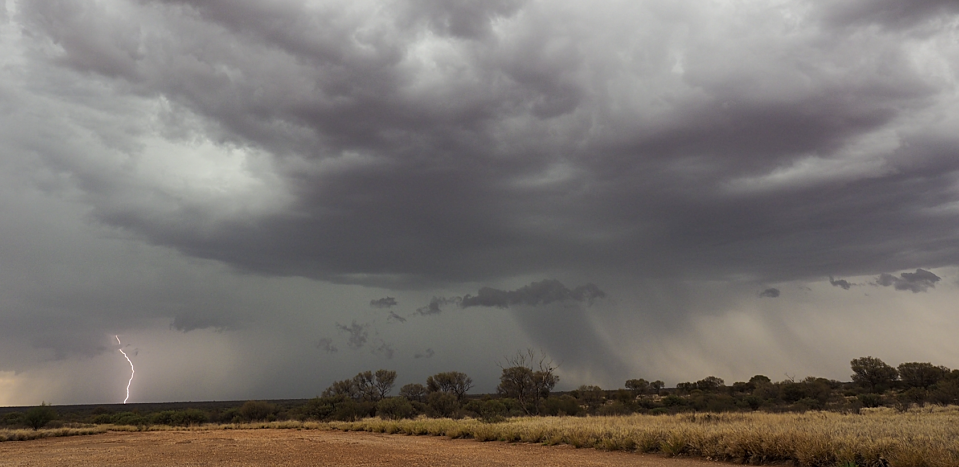
One Nation’s chances as a dominant conservative party are piñata-like
Posted on 11 Feb 2026
Opinions polls insist Pauline Hanson's fortunes are on the rise, but it is likely that enthusiasm…
Posted on 17 Dec 2024
By David Crosbie

Charities perform vital work in society, but if we continue to short-change them, we will all suffer, says Community Council for Australia CEO David Crosbie.
This Christmas will be tough for many families as the cost-of-living crisis continues to crunch household budgets hard.
Yet, disturbingly, there is now evidence that those who come to the aid of those families – the various charities across the country – are also doing it tougher than ever.
One in three face an uncertain future, meaning critical services may be wound back – just when they are needed most.
A new report commissioned by the Community Council for Australia has shown that up to 37% of Australian charities are confronting uncertainty as inflation and the cost-of-living crisis hit the sector hard. It’s a perfect storm.
The findings are alarming given that the nation’s 50,000+ charities employ over 1.4 million Australians and turn over more than $200 billion.
It is not good news for our communities, and it is not good news for the nation’s economy.

But a crisis could still be avoided if governments across Australia, in their service contracts with charities, paid what it actually cost to deliver the service.
It sounds simple and somewhat obvious.
In 2022 a major report by Social Ventures Australia and the Centre for Social Impact, Paying What It Takes, revealed that the indirect costs for a charity to provide a service ranged from 26% to 47% of total expenses.
Yet funders, most notably governments across Australia, were unwilling to fund more than 15–20% for necessary indirect costs.
The public often abhors “administration costs” in the charities they give to, and yet if an organisation is to be efficient, secure and effective, it must maintain its operations and keep donors’ and clients’ details safe – just like a for-profit business.
But when governments and funders short-change charities and expect miracle outcomes, they force some charities into a starvation cycle, a cycle where charities begin cannibalising their own organisation to survive.
And now we have the result of this shortsighted approach to funding the nation’s charity sector.
It is also leading to a divide within the sector where the “haves” are doing well but a large number of “have nots” are struggling.
The CCA’s findings indicate that while 55% of charity leaders are somewhat or highly confident about their organisation’s future, 37% are uncertain.
This divide highlights ongoing challenges in meeting growing demand while maintaining sustainability.
"The pressure on charities comes as recent reports have also highlighted growing food and housing insecurity, leading to heightened demand for charitable services."
It comes as no surprise that so many charities are struggling and have grave doubts about their futures.
The warnings have been loud and clear, and the sector has echoed them for many years.
Since the Productivity Commission first highlighted this issue almost 15 years ago, charities have been pointing out that the real costs of providing services to our communities are much higher than the funding being provided. This new research reinforces previous findings that the biggest issue confronting charities is the lack of support to meet rising costs and increasing demand.

Just this month the head of the Australian Charities and Not-for-profits Commission highlighted the incredible strain charities are under, revealing that ACNC data showed expenses have surged significantly more than income generation. In some charities, costs are going up at double the rate at which income is rising.
The pressure on charities comes as recent reports have also highlighted growing food and housing insecurity, leading to heightened demand for charitable services.
The Foodbank Hunger Report 2024 found that 3.4 million Australian households are experiencing food insecurity, with two million experiencing severe food insecurities.

The extent of the crisis in the charity sector is grave.
When more than a third of charities are talking about having an uncertain future, it’s clear that the level of unmet need is high, and that can only mean frustration for charities and the communities they serve.
Some charities are already choosing not to seek the funding being offered to provide their specialist services because they can’ t afford to take on more loss.
Funders should “pay what it takes” to deliver required services or more and more charities will have to refuse underfunded contracts and grants.
The findings clearly signal a need for more support to address rising costs, increased pressures and demands, workforce challenges, and funding shortfalls.
CCA’s report was based on interviews with 56 charity leaders. It found the cost of operations topped the lists of concerns, with 93% expecting worsening conditions.
Competition for resources such as funding, skilled staff, and volunteers (of concern to 73% of leaders) and economic downturns (71%) also ranked highly as major challenges.
Environmental factors including climate change and natural disasters (56%) and social trends (52%) were also highlighted as adding to the pressures on charities to invest more in the way they provided services.
Australian charities play a critical role in our societies, and in recent decades they have shouldered more of the burden to help those in need as governments have increasingly contracted out their social services.
But if we continue to short-change the charities that are doing this vital work, we will all suffer – especially those who are most in need this Christmas.
David Crosbie has been CEO of the Community Council for Australia for the past decade and has spent more than a quarter of a century leading significant not-for-profit organisations, including the Mental Health Council of Australia, the Alcohol and Other Drugs Council of Australia, and Odyssey House Victoria.

Posted on 11 Feb 2026
Opinions polls insist Pauline Hanson's fortunes are on the rise, but it is likely that enthusiasm…

Posted on 04 Feb 2026
As we move into 2026, I can’t help but think the world is wobbling a little.

Posted on 28 Jan 2026
The 2026 Australia Day Honours list delivered a sobering reality check. After reaching gender…

Posted on 28 Jan 2026
This year’s Adelaide Writers’ Week began with the cancellation of a talk by Palestinian-Australian…

Posted on 16 Dec 2025
As Australia prepares to welcome its one millionth refugee, human rights advocate and former…

Posted on 10 Dec 2025
What a year 2025 has been, particularly at a national level where the Parliament and politics as we…

Posted on 26 Nov 2025
Charities and not-for-profits can be outstanding advocates for their cause, their community, their…

Posted on 12 Nov 2025
Managing a charity or not-for-profit in Australia is often more complex than it may appear. On any…

Posted on 29 Oct 2025
One of the most contentious debates across many areas of human services is the for-profit versus…

Posted on 28 Oct 2025
Workers in the not-for-profit sector lift up communities, care for those in crisis and do work that…

Posted on 08 Oct 2025
The cost of climate change's impact on Australian life is increasingly well documented. The…

Posted on 08 Oct 2025
The Wurundjeri Indigenous people who live in and around Melbourne understand their environment as…